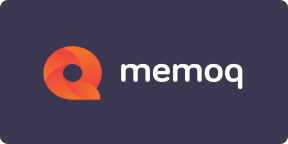Content connector is memoQ’s software solution for content exchange without human intervention. It reduces errors in running translation projects, and lets your organization respond much faster to content changes.
To install content connector and a redesigned management tool, you only need to download this file. From memoQ 10.0 content connector server is no longer part of the memoQ server & deployment tool.
Bugfixes:
BUG-12035: Content connector: Content connector server crashes if a connector is not accessible during startup
BUG-13506: Content connector: Content connector server might crash with the error message “A heap has been corrupted”
BUG-13787: Content connector: In rare cases, the Git connector has issues when pushing large files
BUG-13830: Content connector: Content connector server crashes if a connector is not accessible during startup
Improvements:
INT-725: Add new supported languages from memoQ 10.6 to Content connector
Download
Size: 11.3 Mb
